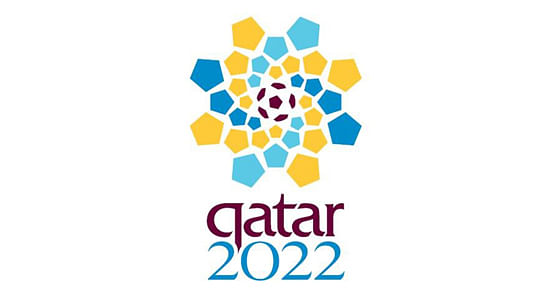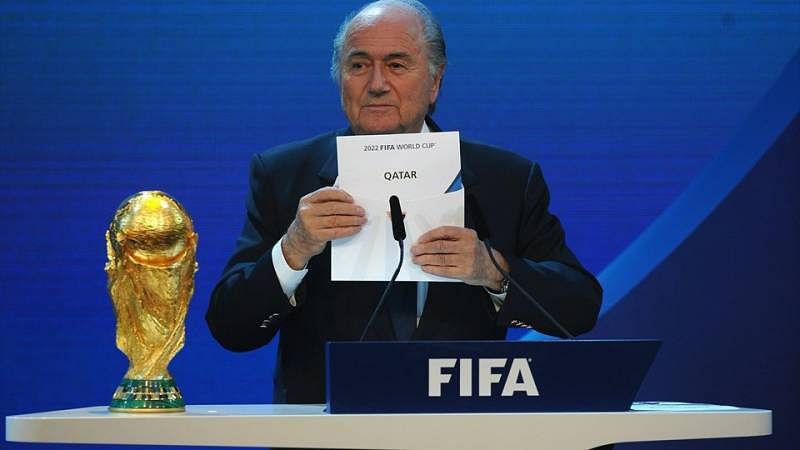
There is a case for having the World Cup in one of the hottest places on earth. The World Cup hasn’t been held in that part of the world before, but is that a good enough reason to hold it there? After all, the Winter Olympics haven’t been held in London before, but there’s a good reason for that, it’s a climate-based reason in the same way Qatar is hardly suitable for the World Cup. Qatar is mainly desert and during June-July the average daytime temperature can be more than 50 degrees centigrade.
Qatar doesn’t have the stadium infrastructure for a major tournament, but this seems to matter little to FIFA who constantly force countries to build stadia used only for their tournament, left to crumble once the self-appointed suits have returned to their luxury in Switzerland. With a land-mass smaller than East Timor, Bahamas or the Falkland Islands, and a population lower than Albania or Lithuania, Qatar is hardly an advert for a burgeoning football economy. But it has ‘the blessing’ of the Arab world, and above all, it has the finances to win favour with the powers that be.
In addition to this there are other reasons not to hold such a prestigious competition, arguably the largest sporting event in the world, in a country which seems so discriminatory. Qatar bans consumption of alcohol in public areas. It is consumed legally in hotel bars and clubs as long as you have a passport and permit to be in the club. But Qataris are not allowed in these places, and the organisers have said they would allow alcohol but only in designated fan areas so you will have the prospect of tourists being allowed drink while the locals look on in envy. That of course assumes locals will be allowed anywhere near one of the greatest sporting events in the world. Qatar also declares homosexuality illegal. This matter was dealt with pathetically by Sepp Blatter who, when questioned, said “they’ll just have to refrain from sexual activities during the tournament”. As you can imagine this didn’t go down too well, but then Blatter is a past master when it comes to inappropriateness.
To cap it all, the stadiums are being built by using migrant labour, mainly from Nepal, who will be lucky to still be alive to see the fruits of their labours. They’re poorly treated and the statistics are startling. In 2014 Nepalese migrants died at a rate of one every two days. If you included stats for Indians, Bangladeshis and Sri Lankans then they would probably be nearer more than one a day.
Now we had similar concerns over the Olympics in Beijing and there’s an argument for a global event providing a influencing more equality in the aftermath of the event being held in a particular country. But Qatar isn’t the only country in that region with a dubious reputation when it comes to human rights. In addition to all this, there is the suggestion Qatar is an important funder of Islamic State, and if the previous examples aren’t enough to deny them the honour of hosting the tournament, then this last one surely is.
But Qatar has the blessing of the whole of the Arab world, apparently, although initially there were concerns over Israel as arab countries do not recognise it. But Qatar said they would let Israel take part if they qualified. They’re desperate for this, you must at least give them that.
So is it the duty of sporting authorities to alter the politics of a host nation? FIFA will hardly want a debate on morals as their own are highly suspect and they must surely not want to open themselves up too much for fear behind every door is more than one skeleton. Just look at the investigation into the voting process for the 2022 tournament, and it is clear there is much to hide.
Australia would’ve been a better venue, in my opinion. The stadiums are already there and will continue to be used after the tournament, plus there is a flourishing football industry there. They have never had the World Cup in that area before, with Japan and Korea 2002 tournament being the closest. The population and the government were for the bid, but ultimately Australia didn’t have enough money to convince the executive they were a worthy option.

FIFA just seem to be pushing their weight around, demanding the football world complies. But this is where they could come unstuck. FIFA has behaved just any dictatorship over the past 20 years. It has treated ‘the people’ (the football federations and clubs) as if they’re stupid and will do anything FIFA decrees. Blatter’s courting of less dominant federations has indeed extended the sport to a wider audience but he has struggled to keep the major nations on board. This latest ‘do as we say’ could have repercussions. FIFA’s reaction to consternation over Qatar is extremely revealing of an organisation which believes its power is infinite. But here is where the potential problems lie. Football has become richer and richer, yet although its reach has become broader there is still a lot of power centred in Europe. Blatter has tried hard to spread the power and influence but UEFA with its Champions League and its Premier League, La Liga and Serie A
Of course what now becomes interesting is how the European leagues deal with the new winter World Cup. Keen to avoid clashing with the Winter Olympics and Ramadhan, FIFA has finally decided to move the tournament to December rather than the usual June schedule. Why it’s taken them this long remains a mystery as all the sensible advice pointed to needing to re-schedule it if Qatar was the best option. But how will this fare across Europe? In England the Premier League needs to decide whether to have a gap just four months into the season, or continue with clubs filling line-ups as best they can. That could get tricky when you’re supposed to name a squad of twenty-five and many of them will be off to the Middle East. If they do decide to carry on, what happens if some clubs have players who are injured but only for the first week or so? Surely they will have an unfair advantage? Remember the fuss over Diafra Sakho when West Ham pulled him out of the African Cup of Nations, citing injury as the reason, only to subsequently play him in league matches.
In Europe some clubs are already making noises about how they have to re-jig their calendars to allow for FIFA’s international fixtures and they show little sign of reducing, despite the new Nations League. One of the biggest barriers Europe and other major footballing nations face is the accusation that denying a country such as Qatar the option of hosting a vast competition, smacks of the colonialism and dominance which probably held the sport back until Joao Havelange’s appointment in the early 1970’s.
As I said, I believe there are better options, whether Australia or even USA. My reasons for rejecting Qatar are both football and politically related. FIFA may still have to deal with the fall-out of their next host nation annexing one of the countries competing to qualify, and all the other negatives which no doubt will be highlighted in three years’ time. If they manage to bat those off, they’re likely to be nothing compared to the noise which undoubtedly will erupt when all the focus is on Qatar.
Whether Blatter will still be running the show by then, remains to be seen, and we may well find he falls victim to the similar arrogance and infallibility as many other dictators in history have believed they have a right to possess.
Guest Blog by Pete Spencer